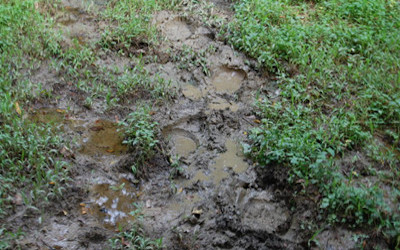PTE考生目前最大的问题之一就是练习题缺乏。除了有限的基本官方书(PLUS,Testbuilder, OG)之外
就没有题了。很多英语基础不是很扎实的同学很难找到练习材料。悉尼文波雅思PTE培训学校专门为澳洲,尤其是悉尼、墨尔本的PTE考生准备了适合PTE听力阅读练习的科学60秒。各位PTE同学可以练习PTE听力中的summarise spoken text和PTE口语中的retell lecture,PTE听力口语-科学60秒-Frosty Moss练习记笔记技巧和复述。废话少说,下面开始:
听力内容:
60秒科学节目(SSS)是科学美国人网站的一套广播栏目,英文名称:Scientific American – 60 Second Science,节目内容以科学报道为主,节目仅一分钟的时间,主要对当今的科学技术新发展作以简明、通俗的介绍,对于科学的发展如何影响人们的生活环境、健康状况及科学技术,提供了大量简明易懂的阐释。
This is Scientific American — 60-Second Science. I’m Jason Goldman.
Imagine a world without elephants. Not only would we have lost one of the planet’s most charismatic, extraordinary creatures. Also gone would be a network of ecosystem engineers—because elephants are crucial for other creatures to exist.
They disperse seeds in their copious droppings. By literally cutting paths through forests as they trample trees and bushes, they create a more complex landscape. And now we know that their very footprints are important.
“We were walking through the forest in Kibale National Park…and that’s when we stumbled upon these water-filled elephant footprints.” University of Koblenz–Landau ecologist Wolfram Remmers. “And we looked at them and we quickly noticed that they were not only filled by water, but there were lots of animals living in them.”
Remmers and his colleagues discovered that elephant footprints are a critical habitat for aquatic invertebrates like water beetles. The team studied 30 footprints in different parts of the national park in Uganda to see just who calls this unique habitat their home. In all, they found 61 species from 27 taxonomic orders.
The researchers then created 18 artificial footprints to see how fast they would be colonized. Water beetles showed up on day one. After five days, 410 individual invertebrates were occupying the prints. The findings are in the African Journal of Ecology.
“If you think of these footprints as tiny islands in a big forest, it was amazing to me to see how quickly these small animals could find them and colonize them and use them as habitat for foraging and reproduction and living.”
In some places, elephant footprints are the only stagnant ponds to be found, which could mean that these insects depend on the pachyderms for their very survival. But because this discovery is so new, nobody really knows how critical these habitats are.
“We are not sure how much they are really dependent on elephant-made footprints in other areas, or if they would completely disappear or if they would just be there in a lower number.”
Without additional protections, elephants will undoubtedly disappear from large swaths of their ranges. Which means a huge community of invertebrates might be severely restricted in their ability to move across the landscape—with ecosystem consequences we can only guess at.
Thanks for listening for Scientific American — 60-Second Science Science. I’m Jason Goldman.





